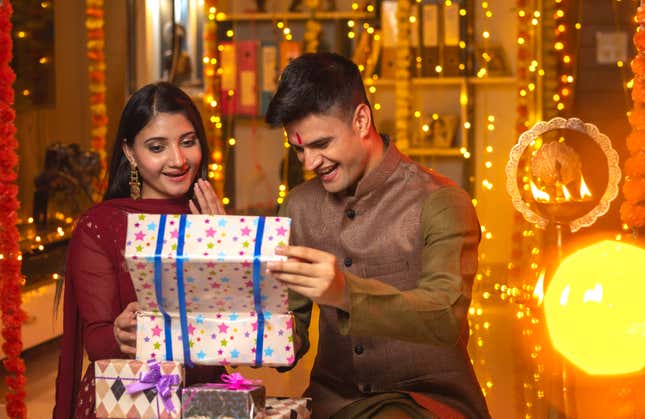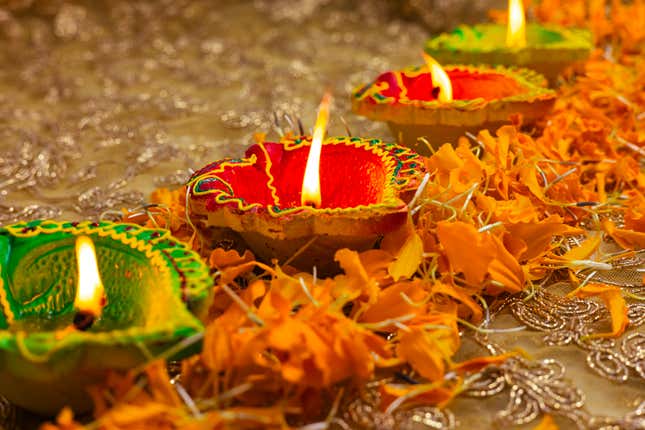
In This Story
Diwali, a major Hindu festival symbolizing the triumph of light over darkness, is less than two weeks away, and this year, U.S. retailers are embracing the occasion with festive decor, special promotions, and exclusive Diwali-themed offers.
The increasing prominence of Diwali celebrations and related marketing campaigns across the U.S., a festival also known as Deepawali (meaning “row of lights”), reflects a strategic effort by retailers to tap into the event’s association with wealth, prosperity, and abundance. By catering to the growing South Asian community and the broader audience’s interest in cultural festivities, businesses are positioning themselves to capture a share of the holiday’s economic and cultural significance.
Why Diwali is so important for businesses

This year, Diwali will be celebrated on October 31st. The festival is celebrated among Hindus, Sikhs, Buddhists, Jains, and others, and holds profound significance for businesses. The Confederation of All India Traders reported that Diwali-related sales in 2023 reached an estimated $45 billion, with food, textiles, and jewelry being the top-selling categories.
During this festival, millions of devotees worship the goddess of wealth, Lakshmi, and the god of wisdom, Lord Ganesh. The festival not only represents a time for spiritual reflection but also marks the beginning of a new financial year, according to the Hindu calendar.
Diwali presents an invaluable opportunity for many entrepreneurs, stock traders, and business people to reset their financial accounts and open new ones on this auspicious day, symbolizing fresh beginnings and renewed aspirations for success.
Over the five-day festival, homes are adorned with vibrant lights and candles, creating a warm and inviting atmosphere. People indulge in delicious sweets, exchange gifts, and buy jewelry and coins, reinforcing social bonds and honoring traditions passed down through generations.
How U.S. retail giants are capitalizing on Diwali

South Asians are among the fastest-growing ethnic groups in the United States, with over 5.4 million residents making their mark in industries like tech, entertainment, medical science, and politics. Recognizing the significance of Diwali, retail giants like Costco (COST-0.22%) have introduced an impressive array of Diwali-themed products to meet the growing demand during this festive season. Their offerings include traditional items such as gold bars and coins, firecrackers, candles, decorative lights, a variety of sweets, and essential Diwali-related grocery items, among others. This year, these products have not only gained popularity but are also flying off the shelves, with many items quickly running out of stock.
Similarly, Target (TGT-0.70%) has introduced a range of Diwali-themed decorations and gift items, catering to the festive spirit of the season. Meanwhile, retailers like TJ Maxx (TJX-0.30%) and Walmart (WMT+0.77%) have dedicated separate sections in their stores for Diwali, offering a variety of products to help customers celebrate the festival.
In another sign that Diwali has gone mainstream, Barbie (MAT) has unveiled its first “Diwali doll” ahead of the festival of lights, dressed in traditional Indian attire and makeup.
… And Diwali and Halloween coincide this year — #diwaloween
This year, Diwali falls on Halloween, creating a unique overlap of festivities. The timing has sparked excitement, especially among Indian-American communities, as children and adults find more reasons to celebrate.
Social media is abuzz with viral memes and reels featuring people celebrating Diwali in Halloween costumes, blending traditional Diwali rituals with Halloween’s playful and spooky spirit, calling it #diwaloween.
These lighthearted, creative expressions reflect how the two cultures are merging, showcasing the adaptability and joy of cross-cultural celebrations. Retailers and community organizers are also embracing this fusion, hosting events and sales that cater to both holidays, making it a season of even greater festivity and inclusivity.